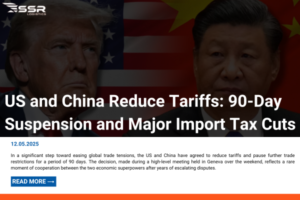Vietnam’s octopus and squid are becoming key seafood export products, constantly “hunted” by major markets such as Korea, China, and Thailand. Thanks to the 0% import tax incentive, Vietnam’s seafood export industry and octopus and squid exports have earned more than 400 million USD in just the first few months of the year, opening strong growth potential.
 Since the beginning of 2024, octopus and squid exports in Vietnam have earned more than 400 million USD. Photo: VASEP
Since the beginning of 2024, octopus and squid exports in Vietnam have earned more than 400 million USD. Photo: VASEP
Vietnam’s seafood export situation
Vietnam has always been a seafood powerhouse, with the third largest seafood exporter in the world. In addition to prominent products such as pangasius, shrimp, and tuna, squid and octopus contribute a significant part to the country’s total seafood export turnover. This is a potential product group, bringing in hundreds of millions of USD each year.
Octopus and squid export turnover from January to August 2024
According to the Vietnam Association of Seafood Exporters and Producers (VASEP), squid and octopus exports earned $406 million in the first eight months of this year, down 3 percent year-on-year. Specifically, squid exports reached $221 million, down 7 percent, while octopus exports reached more than $185 million, up 3 percent.
 Vietnam’s squid and octopus export situation from January to August 2024
Vietnam’s squid and octopus export situation from January to August 2024
Top 5 main export markets
Regarding export markets:
- South Korea is currently Vietnam’s largest partner in importing squid and octopus, with a turnover of 159 million USD, up 6.7% over the same period last year.
- Japan ranked second, reaching more than 93 million USD, despite a decrease of nearly 10%.
- Notably, China and Hong Kong have risen to become the third largest market, reaching a turnover of 47 million USD, a sharp increase of 12% compared to the first 8 months of 2023.
- The next positions are Thailand and the EU.
For the Korean market, this country mainly imports from Vietnam dried skinless squid, frozen cleaned processed squid, frozen sushi squid, frozen cleaned cuttlefish fillets, frozen pinecone cuttlefish, frozen cleaned whole octopus, iced cut octopus, frozen processed octopus… Korea is trying to reduce its dependence on imported squid and octopus, especially from China.
Reasons for the decrease in octopus export and squid export turnover
Vietnam’s seafood export turnover is currently encountering numerous challenges, resulting in a decline in revenue, particularly in the octopus and squid product categories. One of the primary reasons for this decline is the controlled inflation in major countries and the slow economic recovery, which has impacted the demand for seafood consumption.
Additionally, geopolitical conflicts such as the Russia-Ukraine war and tensions in the Middle East have disrupted the global supply chain, leading to increased transportation costs and higher prices of aquaculture inputs. Notably, the failure to address the European Commission’s “yellow card” on seafood exploitation in Vietnam has posed significant obstacles to exporting to major markets, thereby reducing the competitiveness of Vietnamese octopus and squid in the face of growing supply from other countries.
 The tension in the Middle East is also the cause of disruption to the global supply chain. Photo: People’s Army Newspaper
The tension in the Middle East is also the cause of disruption to the global supply chain. Photo: People’s Army Newspaper
0% import tax incentives
Vietnam’s squid and octopus exports have benefited significantly from import tax incentives, especially with a 0% tax rate in key markets such as South Korea, Japan, and China. The application of this tax rate helps Vietnam’s seafood products compete better with their rivals in the international market, as businesses can reduce costs and increase their ability to export to high-demand markets.
In addition, thanks to free trade agreements (FTAs) that Vietnam has signed with partners such as South Korea (VKFTA) or the Eurasian Economic Union (EAEU FTA), items such as squid and octopus are completely exempted from import tax. This not only helps increase competitiveness but also promotes the sustainable development of the seafood industry. With these incentives, Vietnam can expect steady growth in seafood exports, especially when quality and fishing productivity are constantly improved.
Upcoming predictions for Vietnam’s seafood industry in general and squid export, octopus export in particular
Forecasts for Vietnam’s seafood industry in the coming time, including squid and octopus exports, face many positive and negative factors. While seafood consumption demand in major markets such as the US and EU may recover after the economy stabilizes, exporting enterprises still face challenges from strict compliance with regulations on origin and environmental sustainability (such as the EU’s IUU “yellow card”). In addition, input prices for the aquaculture industry may continue to increase due to geopolitical instability and oil price fluctuations.
For squid and octopus, the forecast shows that demand remains stable in key markets such as Korea, Japan and China, but enterprises need to improve product quality and comply with international standards to maintain competitiveness. In addition, the preferential import tax of 0% will be a positive factor, creating growth momentum for industry. However, fluctuations in freight rates and logistics costs remain a major concern that needs to be closely monitored.
To see more articles, please click on our Logistics News section.
Businesses that need customs and import-export consulting between Vietnam – Korea, Vietnam – China, Vietnam – Europe please contact SSR Logistics via Hotline (+84) 911 988 484 or leave your information here for specific advice.
SSR Logistics is the leading provider of reputable customs brokerage and international freight services in Vietnam. With over 15 years of experience in the logistics industry, we emphasize transparency, legitimacy and are committed to providing comprehensive solutions that save costs and time for customers.
With a modern warehouse system and experienced transportation staff, SSR Logistics provides a variety of additional services such as: customs clearance, warehouse leasing, domestic transportation, international transportation by sea and air, and international express delivery.









